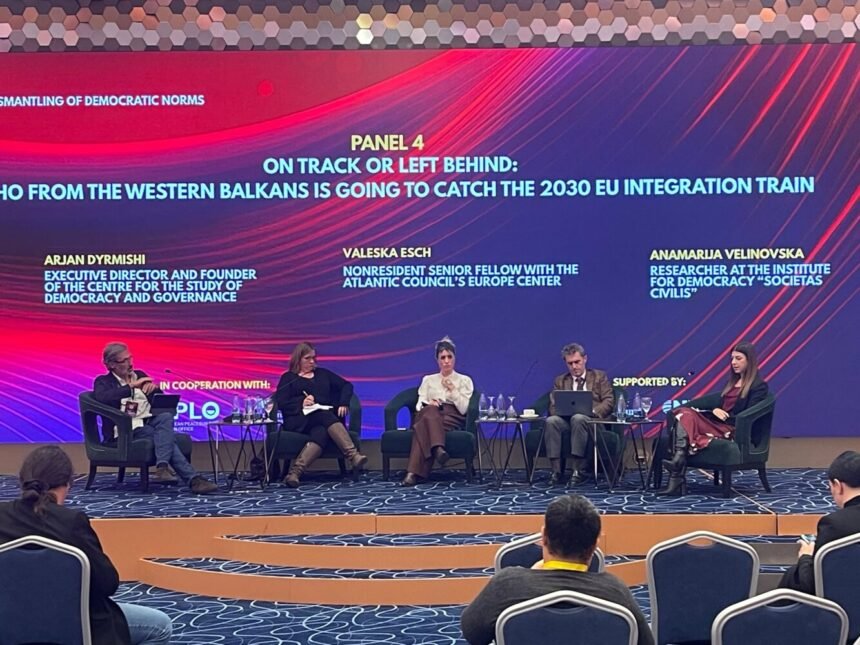At the Peace and Democracy Summit, Panel 4 focused on the topic: “On Track or Left Behind: Which Western Balkan Countries Will Catch the EU Integration Train by 2030?”, reports Ekonomia Online.
Participants examined the challenges Western Balkan countries face on the road to EU membership, with particular emphasis on Albania and Montenegro, which are currently progressing fastest in the accession process, and how this influences the broader region.
EU Integration: More Than a Deadline — A Political Signal
Arjan Dyrmishi, Executive Director and Founder of the Centre for the Study of Democracy and Governance, stressed that the year 2030 should not be viewed strictly as a deadline, but as a political signal.
“The year 2030 is a necessary horizon, but not sufficient on its own. Geopolitical factors have raised the importance of enlargement. The EU expects candidate countries to prepare for membership, but at the same time, the EU itself must carry out internal reforms.”
He highlighted obstacles such as unanimity in EU foreign policy decision-making, warning that if reforms are not completed on both sides, further disappointment is likely.
North Macedonia: Reliable but Facing Public Cynicism
Anamarija Velinovska, researcher at the Institute for Democracy “Societas Civilis,” emphasized the importance of the local context and the growing public skepticism toward EU enlargement.
She noted that North Macedonia remains one of the EU’s most aligned and predictable partners, fully in step with EU foreign and security policy and a longstanding stable NATO partner.
Montenegro: Progress Driven by Political Will
Nevenka Vuksanović, Director of the Center for Democracy and Human Rights, highlighted the role of political will in Montenegro’s rapid progress.
She stated that clear guidance from the EU is crucial for candidate states to move forward effectively.
Atlantic Council: Beware of Over-Expectations
Valeska Esch of the Atlantic Council’s Europe Center cautioned against excessive optimism regarding timelines.
She pointed out that despite progress in Montenegro, the pace is still not fast enough to confidently meet ambitious targets:
“There is a gap between the EU’s messaging and the actual assessment on the ground. We must be cautious about fixed dates, as no official Council document has committed to any specific deadline.”







